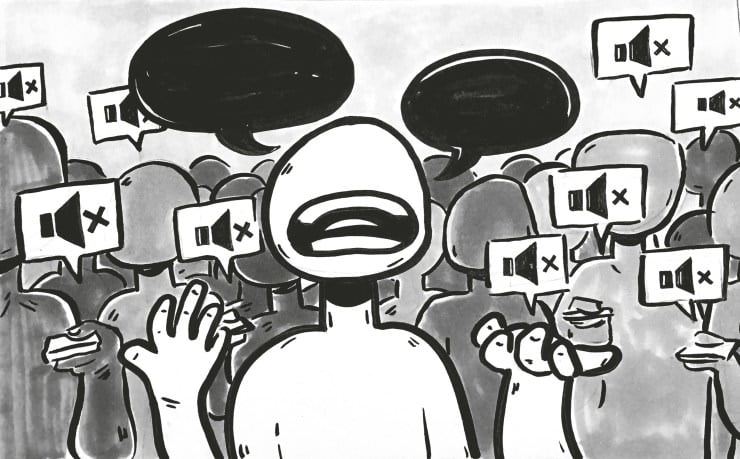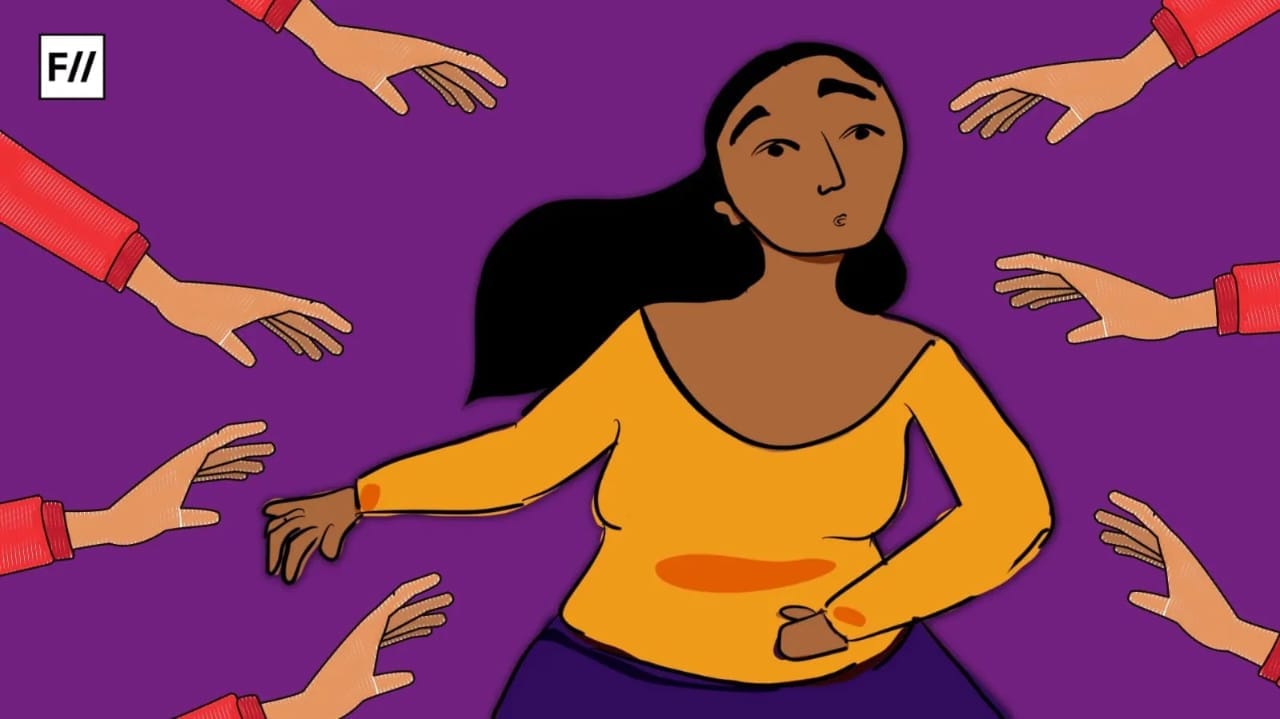I recently wrote an article for Feminism In India where I articulated my disappointment with J.K. Rowling over her defending Johnny Depp, an alleged domestic abuser. It drew condemnation from several sections of the internet – there were Depp fans, Rowling fans, Harry Potter fans, Men’s Rights activists and women who were suspicious of feminism.
I was accused of abusing my freedom of speech and also trying to stifle the articulation and opinions of those who believed that oppressed should be generally grateful for their rights. That there was no such thing as systemic discrimination and the marginalized encouraged bigotry instead of addressing it.
I have often come across this textbook argument against anyone who wants to initiate a conversation that questions the status quo – “Why are you dividing people?”
“Why are you threatening my freedom of speech?”
“My opinion is mine and let us just agree to disagree.”
“This is an isolated incident.”
The news cycle regarding the politics of freedom of speech has been rather dismal in the past few weeks. The compulsory linking of Aadhar despite suspicion around its ability to protect privacy, the systematic killing and arrests of journalists, the use of the infamous Section 124A*, the conflation of state and religion in a country that prided itself in being secular and the killing of minorities with impunity paint a grim picture.
We fell down in our Press Freedom index as well. Not to mention the rise of the worst kind of populism that is essentially enabling the occurrence of these anti-democratic practices. There is a lot of discomfort around the acknowledgement of systemic problems. People do not generally admit complicity in the perpetuation of systemic discrimination. #NotAllMen is only a symptom of the discomfort around the acknowledgement of the ubiquity of institutional sexism, and how men are culpable in actively perpetuating it.
Freedom of speech is a tricky terrain as speech is generally controlled by those in power. For example, a book on Mahatma Gandhi by a British Scholar was banned in Gujarat while Modi was in power because it contained a small implication in a single page of the book that Gandhi might be homosexual. Modi had not even read the book before it was banned. Similarly, there is a systematic practice where corporates shut down research that might be detrimental to their current practices.
Freedom of speech is a tricky terrain as speech is generally controlled by those in power.
The essential conclusion that can be drawn is this – freedom of speech on paper is a right, but mostly only a privilege in practice. If your argument is misogynistic, homophobic, xenophobic, ableist, casteist, fatphobic and basically anything bordering on hate speech, that is an abuse of power. There has been a lot of debate in the discourse of the politics of freedom of speech whether the conflation of hate speech with freedom of speech is permissible.
The answer is complicated because criticism is an important component of democracy. Accountability and criticism are essential to the functioning of democratic institutions. But where do we draw a line? At what point does criticism turn into hate speech and who decides this permissibility?
The general approach to tackling the politics of free speech is utilitarianism in democracies. What is admissible to most people is considered acceptable. But under the Modi regime in India, under which people find themselves encouraged in perpetuating systematic violence against the minorities, should utilitarianism be considered an acceptable standard for deciding the limits of free speech? Do we not need a more standard approach to what should be considered acceptable and not acceptable?
The pictures of angry men clad in saffron in India and angry white men with torches and swastika marks on their arms in the US imply that generally its the most privileged men who feel emasculated when others exercise their freedom of speech. Those in power are always threatened that the discourse of the marginalized will destabilize their figurative and literal power.
Hate speech against the marginalized becomes an essential tool for the assertion of dominance by those who are privileged. Should hate speech, in this case, be permissible? Should hate speech be permissible when it comes at the cost of those who are already suffering?
Also Read: The Hypocrisy Of Censorship: Lipstick Under My Burkha Vs Films By CBFC’s Nihalani
Then comes censorship, a deeply problematic terrain and a herculean one to navigate. The idea of censorship lies in complete antithesis to freedom of art. Who decided the laws of censorship and on what basis?
Mostly it depends on the socio-cultural climate. It is a direct reflection of the tolerance quotient of a particular country. But again, should that be left to utilitarianism? Doesn’t that lead to the erasure of the experience of the minorities if left to utilitarianism?
If there is a uniform basis of assessment for all of this what should that be based on? What would be the modern approach? The popular idea is that modern societies should be more individual-based than community-based.
But these are difficult lines to navigate in a country like India which only recently stated Right to Privacy as a fundamental right. The transition process from being a community-based society to an individual one is only at a very nascent stage.
But the real question is hate speech ever justified even if we take into account all the complexities around the topic? Because the complications of the discourse around free speech can be simplified.
Hate speech against the marginalized becomes a tool for the dominant assertion of the privileged.
There is a difference in the implication of the usage of free speech by someone who is oppressed and someone who is an oppressor, and the difference is simple. Oppressor uses it as a right. For the oppressed, it is made to feel like its a privilege.
What does it mean when the oppressor feels like their speech is threatened? The obvious implication is that what they were saying was coming at the cost of those who were oppressed. Another implication is that the voices of those who discriminate should take precedence over those who voice against discrimination.
And maybe there is no such thing as absolute freedom of speech – but social media comes close. With its largely egalitarian policies, social media has acted as a largely effective ground for activism and provided space for everyone to recount their experiences.
But social media platforms such as Facebook and Twitter are also a breeding ground for trolls who are given equal space due to their egalitarian policies. These platforms are partly responsible for the 2016 US Election scandal and the State in our country targeting those who criticize them through trolls. If the state indulges in the despicable act of trolling as an effective form of control, what does that mean for free speech?
Freedom of speech is a tough terrain to navigate, and Facebook has come under fire for censoring certain things and not others. Facebook has country-specific policies which it claims matches the temperament of the socio-political situation of the country. What does that mean for a country where free speech is under threat?
In conclusion, I would like to reiterate what I said earlier – Freedom of speech as a fundamental right on paper is still largely a privilege in practice. A privilege limited to few and far between.
Also Read: Online Abuse And The Misappropriated Tool of “Free Speech”
*Section 124A- Sedition—Whoever, by words, either spoken or written, or by signs, or by visible representation, or otherwise, brings or attempts to bring into hatred or contempt, or excites or attempts to excite disaffection towards the Government established by law.
Featured Image Credit: The Mercury
About the author(s)
Holden Caulfield thinks you are a phony.




